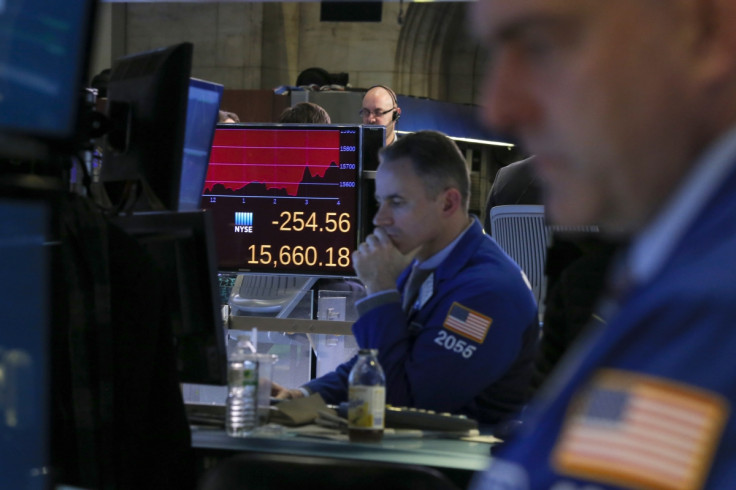US markets round-up: Stocks rebound to close up as oil prices stablise

US stocks rebounded on 24 February, closing up less than 1% as oil price stabilisation helped stocks recover from an intraday decline. All three US averages managed to move past session lows in midday trade to extend gains at closing.
The Dow Jones Industrial Average traded more than 50 points higher, with gains contributed by United Technologies. It closed up 53.35 points, or 0.32%, to settle at 16,485.13. The Dow, along with the Nasdaq composite, remained over 10% below its 52-week intraday highs, in correction.
The Nasdaq Composite rose 39.02 points, or 0.9%, settling at 4,542.61. Apple closed up 1.41 points, or 1.49%, contributing to gains, while Facebook also turned positive.
The S&P 500 closed up 8.53 points, or 0.4%, at 1,929.30. MarketWatch reported that nearly all of its 10 main sectors closed in positive territory, with materials and energy stocks closing 1% and 0.9% higher respectively. However, financial stocks took a hit, closing down 0.2% in the red.
"Oil is today's primary catalyst. The correlation between equities and oil is over 90%," Kent Engelke, chief economic strategist at Capitol Securities Management said. "Markets are also on edge because of bank loans to the oil industry, a fear I think is vastly overblown, but the narrative is increasing in intensity."
Jeremy Klein, chief market strategist at FBN Securities, added: "Despite all that (talk of oil prices heading lower) crude is hanging in there and we're not just getting swung around by it. Then you have the chance to bring in some buyers."
Following a steep overnight decline, oil prices surged 28 cents, or 0.88%, to settle at $32.15 a barrel. Data from the US Energy Information Administration, which showed a rise in weekly crude-oil supplies by 3.5m barrels but also showed a decline in crude production, contributed to the earlier volatile trade. "Probably the DOE report is actually helping as support to WTI today. That's why it's not falling as it was in the pre-market," Luana Siegfried, energy research associate at Raymond James, told CNBC.
"It's sort of a reflex bounce (in oil)," explained Marc Chaikin, CEO of Chaikin Analytics. "It's not enough to pull the market into positive territory. It's primarily the financials that are dragging (down) the market." He added: "When financial stocks are trading poorly that's an indication there's a lack of confidence in the system and it has negative implications for the market."
Treasury yields surged as stocks rebounded, with the 2-year yield at 0.73% and the 10-year yield at 1.71% as of 2.02pm EST/7.02pm GMT. Gold prices rose over 1%, MarketWatch reported. Meanwhile, the US dollar index turned downward, as the euro closed higher at $1.10 and the yen at 111.48 yen against the greenback. The pound sterling continued to weaken amid Brexit worries, dropping below $1.40 for the first time since March 2009.
Asian markets were mixed, with most closing in the red over continued concerns over oil prices. The Shanghai Composite Index closed up, however, rising nearly 0.9% when the yuan midpoint fix was set slightly weaker against the dollar. In Europe, all stocks closed around 2% lower or more. The STOXX Europe 600 dropped almost 3%, closing almost 40% below its 52-week intraday high, CNBC noted.
© Copyright IBTimes 2025. All rights reserved.




















